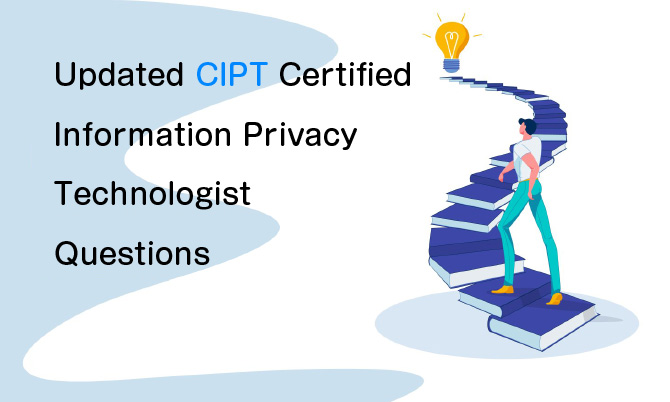Certified Information Privacy Technologist CIPT real exam questions have been updated, which are valid for you to pass CIPT test. CIPT certification validates your deep understanding of privacy in technology and enables you to apply what you have learned immediately to your daily workflow as a technology and data professional. Achieving CIPT certification validates your dual literacy in privacy and technology that translates around the globe. The other related IAPP CIPT exam information is also helpful in the preparation.
IAPP Certification CIPT exam information is available below for you to study.
CIPT Certified Information Privacy Technologist test blueprint cover the following details.
I. Foundational Principles
II. The Role of IT in Privacy
III. Privacy Threats and Violations
IV. Technical Measures and Privacy Enhancing Technologies
V. Privacy Engineering
VI. Privacy by Design Methodology
VII. Technology Challenges for Privacy
All the updated IAPP certification CIPT real exam questions can help you study the above CIPT exam blueprint. Share some updated Certified Information Privacy Technologist CIPT real exam questions and answers below.
1.What distinguishes a "smart" device?
A. It can perform multiple data functions simultaneously.
B. It can reapply access controls stored in its internal memory.
C. It is programmable by a user without specialized training.
D. It augments its intelligence with information from the internet.
Answer: D
2.What can be used to determine the type of data in storage without exposing its contents?
A. Server logs.
B. Collection records.
C. Metadata.
D. Data mapping.
Answer: C
3.Which of the following would best improve an organization' s system of limiting data use?
A. Applying audit trails to resources to monitor company personnel.
B. Instituting a system of user authentication for company personnel.
C. Confirming implied consent for any secondary use of data.
D. Implementing digital rights management technology.
Answer: A
4.An EU marketing company is planning to make use of personal data captured to make automated decisions based on profiling. In some cases, processing and automated decisions may have a legal effect on individuals, such as credit worthiness.<br />When evaluating the implementation of systems making automated decisions, in which situation would the company have to accommodate an individual's right NOT to be subject to such processing to ensure compliance under the General Data Protection Regulation (GDPR)?
A. When the decision is necessary for entering into a contract and the individual can contest the decision.
B. When an individual's legal status or rights are not affected by the decision.
C. When there is no human intervention or influence in the decision-making process.
D. When the individual has given explicit consent to such processing and suitable safeguards exist.
Answer: C
5.Under the Family Educational Rights and Privacy Act (FERPA), releasing personally identifiable information from a student's educational record requires written permission from the parent or eligible student in order for information to be?
A. Released to specific individuals for audit or evaluation purposes.
B. Released to a prospective employer.
C. Released to schools to which a student is transferring.
D. Released in response to a judicial order or lawfully ordered subpoena.
Answer: A
